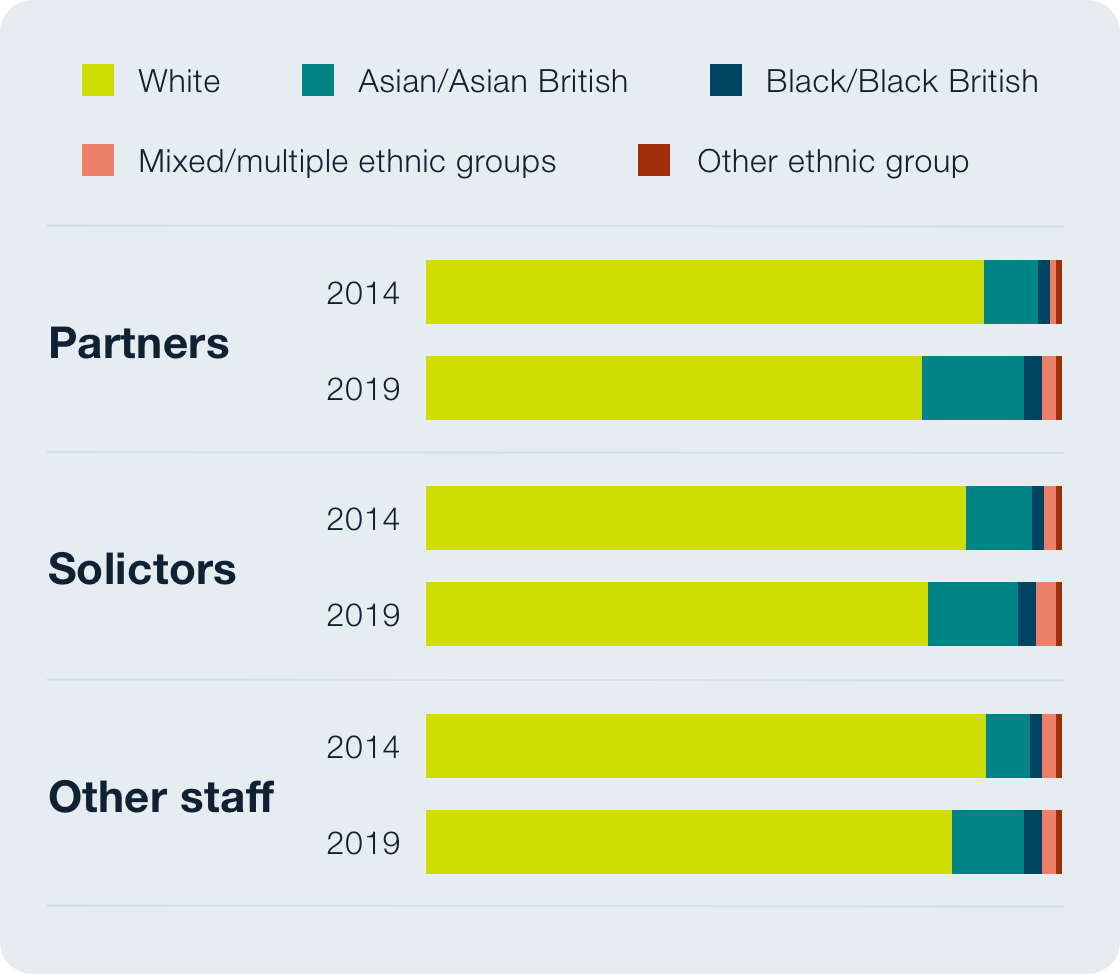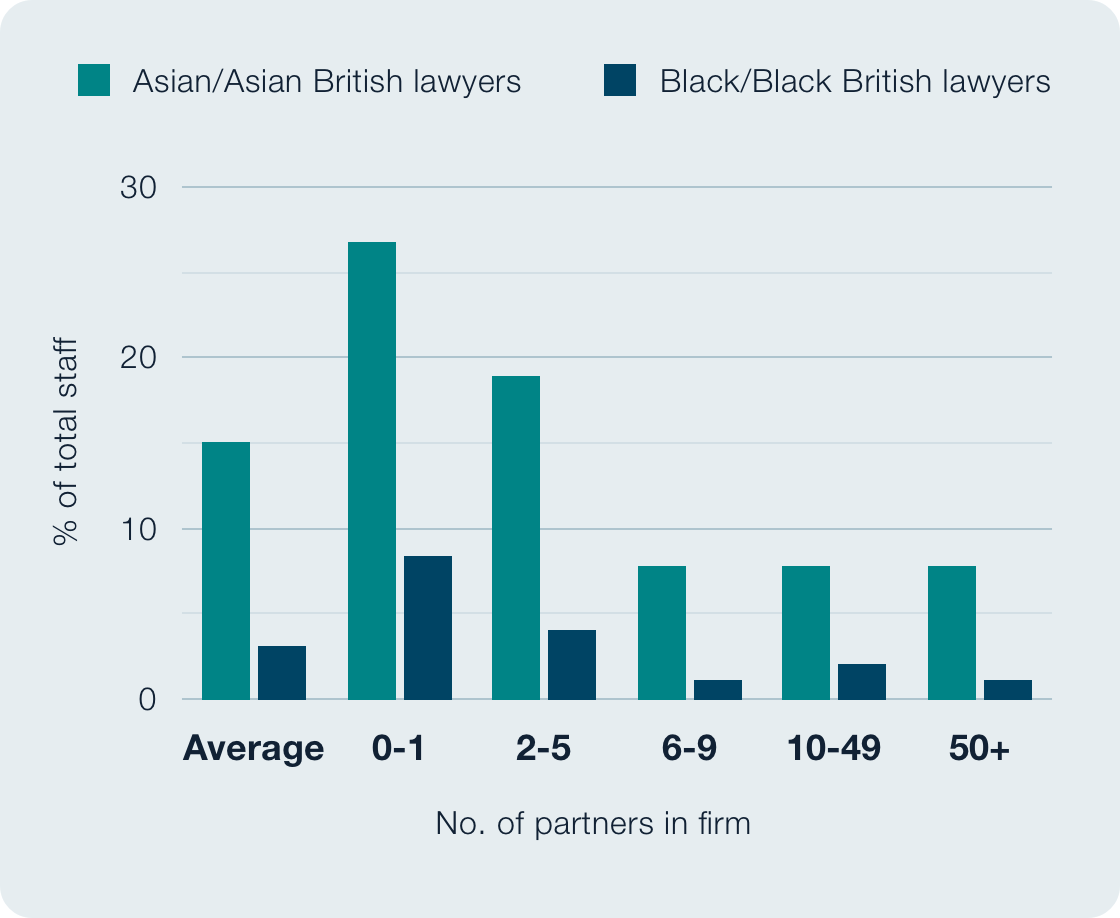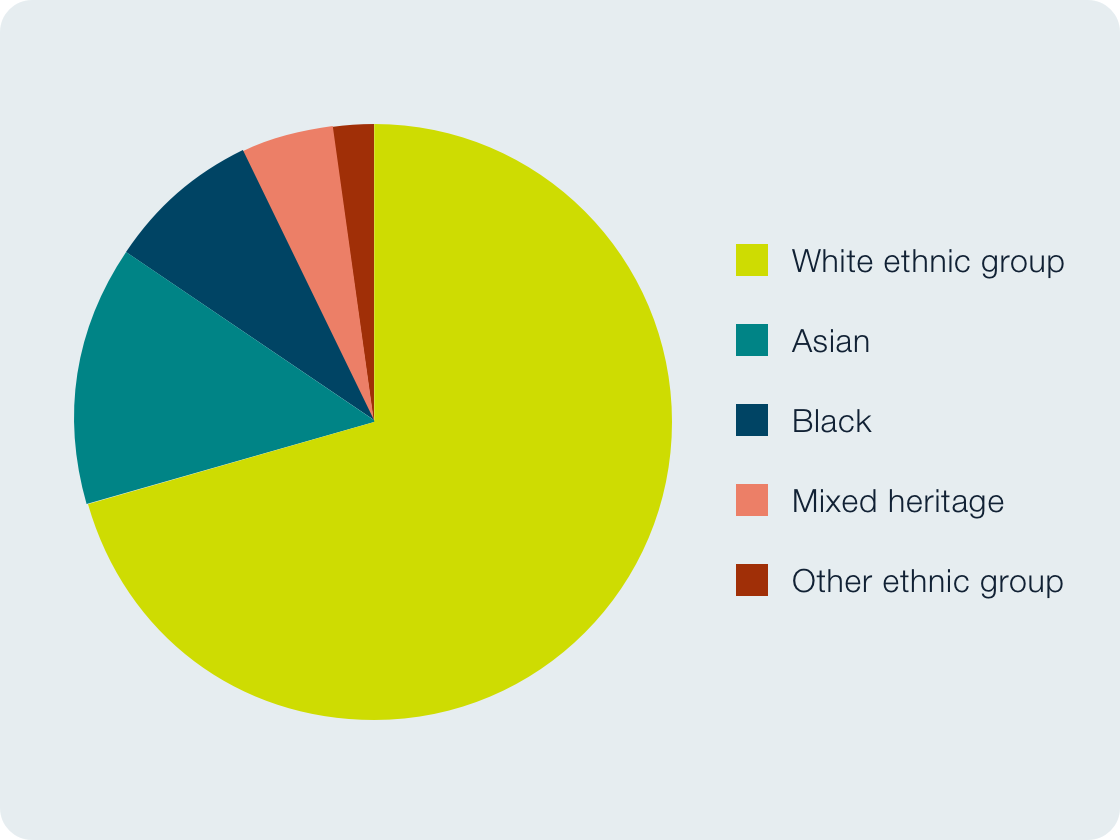Ethnic makeup of law firms correspond with the general population
While overall diversity is important, ethnic diversity is particularly key in the legal industry because of how closely our laws are linked to our social and cultural values. The people helping to uphold and interpret our laws need to reflect our society so that everyone is being represented equally.
Diversity data by the Solicitors Regulation Authority (SRA) initially looks promising for non-white lawyers. In 2019, 13% of people working in law firms were Asian, 3% were black, 2% were of mixed or multiple ethnic groups, and 1% were from ‘other’ ethnic groups. All are roughly representative of the UK population, with the exception of Asians – measured at 8% in the latest UK census.
The number of Asian solicitors and Black solicitors have increased over the past six years, from 10% to 14% for Asian solicitors, and from 2% to 3% for Black solicitors between 2014 and 2019. On a similar note, the percentage of both Asian and Black support staff in law firms has increased steadily over the past six years, increasing from 7% to 11% for Asian staff, and 2% to 3% for Black staff from 2014-2019. Over the same time period, the proportion of white staff has decreased from 88% to 82%.

Ethinic diversity has improved in law firms, 2014 vs 2019
The percentage of Asian and Black lawyers drop in bigger firms
Unfortunately, when you delve deeper, there are some significant red flags. For example, the percentage of Asian lawyers and Black lawyers drop as the firms get bigger, as do the percentage of Asian partners and Black partners. For example, 27% of Asian lawyers are based in 1-partner firms, 19% are based in firms with 2-5 partners and only account for 8% of staff in bigger firms. Similarly, black lawyers made up 8% of lawyers in firms with 1 or fewer partners and a steady drop sees only 1% of black lawyers in firms with 50 or more partners. The only exception is for people in mixed or multiple ethnic groups, with 2% featuring in smaller firms and 3% in firms with 50+ partners.
With the vast majority of Asian and Black lawyers working in 1-partner firms, it’s possible that lawyers from the Global Majority are setting themselves up in their own firms out of necessity. It’s not a reach to suppose that it’s more difficult for them to both enter and gain promotions in larger firms. As a recent report into the judiciary revealed, the proportion of "BAME" judges is low, at only 7%. The report admits this is even lower at senior courts, despite plenty of people from the Global Majority applying for the positions.

% of Asian and Black lawyers decreases as firm size increases
Students of the Global Majority made up 30% of the student body in 2019
According to the latest UCAS figures, white students made up 70% of the total student body in 2019. Asian students accounted for 14% of the overall student body, followed by Black students (8%), those of mixed heritage (5%) and those of other ethnic groups (2%). While the proportion of Global Majority lawyers is promising – at least at smaller firms – there are barriers that students may face as they prepare to enter the legal workplace.
The Solicitors Qualifying Examination (SQE) that’s due to replace both the Legal Practice Course (LPC) and the Graduate Diploma in Law (GDL) in September 2021 has been criticised for potentially neglecting students from disadvantaged backgrounds. When introducing the new SQE, the SRA cited that "the current system is [...] expensive and inflexible, which creates difficulties for many aspiring solicitors, particularly those from less affluent and diverse backgrounds."
However, we share concerns held by others in the industry that the SQE will bring its own problems – without solving the issue of diversity. For example, the SQE isn’t currently covered under the student loan scheme, which makes it only available to students from affluent backgrounds who can afford it – or those lucky enough to have already secured a training contract and can have their employer cover costs. Larger law firms may also ignore or bypass the SQE and insist that law schools prepare their students for something similar to the current LPC – creating a two-tier system within the industry. The SQE will need to be examined and may need adjusting to truly accommodate trainee lawyers from all walks of life.

Ethnic mix of students in 2019


